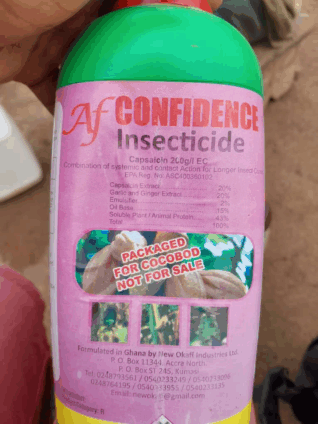On a cocoa farm in Manfo in Ghana’s Ashanti Region, a middle-aged farmer dressed in black trousers and a red Lacoste shirt pours droplets of Aceta Star 46 EC into a yellow container.
He mixes the contents with his bare hands for about three minutes before loading the chemical into a spraying machine for application on cocoa trees.
Aceta Star 46 EC contains acetamiprid and bifenthrin as its active ingredients. While acetamiprid is restricted in some countries, bifenthrin is outright banned in the European Union (EU).
According to the U.S.-based National Pesticide Information Centre, bifenthrin can cause tingling, burning, numbness, and other irritations—effects that may persist for up to 48 hours. Inhalation can also irritate the respiratory tract.
But for farmer Emmanuel Boadi, the risk is necessary.
“Our farm is about 10 acres, but we’ve never received any government-supplied agrochemicals,” he told JOYNEWS. “I have to buy them on the open market. We spray six times a year.”
Boadi is one of many cocoa farmers across Ghana who rely on agrochemicals banned in the EU—products either exported legally by multinationals like Bayer, BASF, and DVA Agro GmbH to local distributors or smuggled into the country through porous borders.
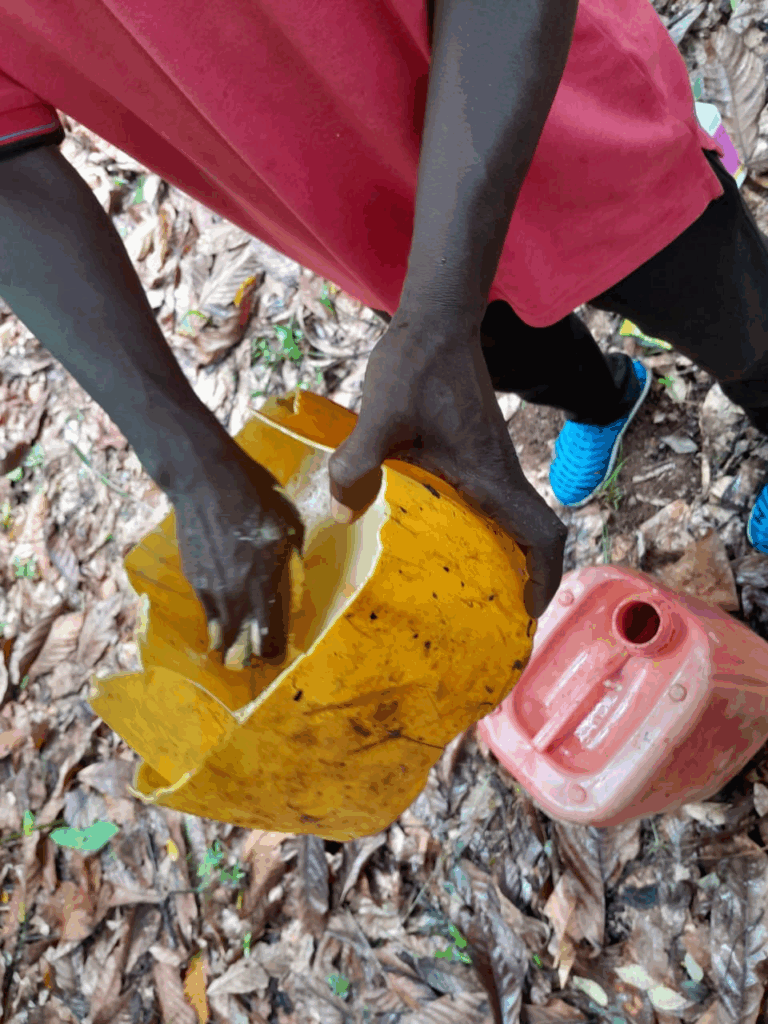
A JOYNEWS investigation in Manfo and Asikasu in the Eastern Region found that out of 24 agrochemicals being used, 9 contained active ingredients banned in the EU.
Illegal Trade in Toxic Products
A 2018 investigation by Unearthed, an environmental journalism group, revealed that 81,000 tons of pesticides legally left the EU for use in poorer countries.
According to UN Comtrade data, Ghana imported over $347 million worth of pesticide-related products in 2023 alone. The top five exporters to Ghana were China, Italy, Hungary, India, and Switzerland.
Between 2021 and 2023, EU nations including Italy, Hungary, France, and Belgium were among the top 10 exporters to Ghana.
But beyond the legal supply chain is a shadow market. A 2020 OECD report titled New Digital Technologies to Tackle Trade in Illegal Pesticides estimates the global market for illegal pesticides at $6–10 billion—on par with illicit waste transport and wildlife trafficking.
“This makes trade in illegal pesticides one of the top ten most lucrative organised crime businesses in the world,” the report noted.
CropLife Ghana, a group representing local agrochemical distributors, estimates that 25–35% of pesticide imports into Ghana are either counterfeit or smuggled.
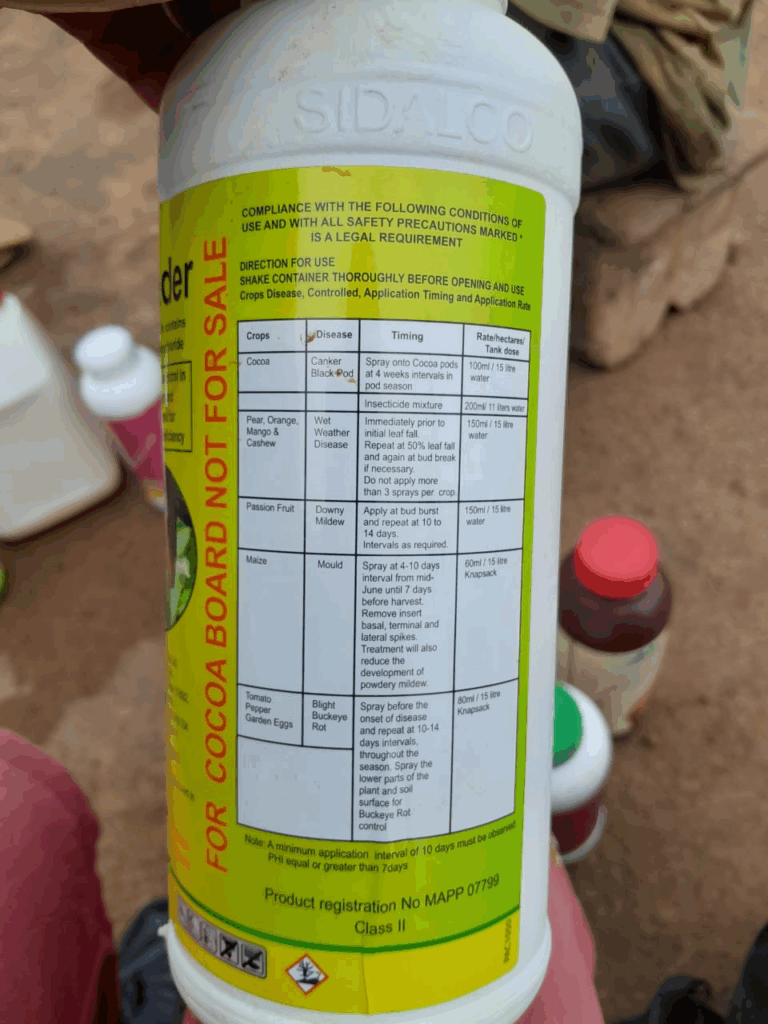
The European Commission banned the production and use of some hazardous chemicals in 2020 but has yet to impose a complete export ban.
According to German NGO INKOTA, EU companies earn at least $1.068 billion annually from selling banned agrochemicals to African and emerging markets.
Market intelligence firm Mordor Intelligence projects Africa’s agrochemical market will reach $8.05 billion by 2025, driven by players like BASF SE, Bayer, Yara International, Syngenta, and Sasol.
Smuggling and Dangerous Substitutes
Smuggling contributes significantly to the problem. A 2016 study by University of Ghana researcher Elisha Denkyira and others identified 22 smuggled pesticides in Ghana, many classified as “highly hazardous” by the World Health Organisation (WHO).
While COCOBOD has approved products like Confidor, Actara, and Akatemaster, farmers continue to use other chemicals such as Polythrine, Thiodan, and Okumakete—many of whose active ingredients are banned in the EU.
Raymond Owusu-Achiaw, National Planning Officer at Conservation Alliance International, told JOYNEWS that unapproved agrochemicals enter Ghana via dealers and vendors from Côte d’Ivoire and Niger.
“They sell them cheap because they don’t pay taxes or duties. Some imitate known brands; others smuggle cocktail mixtures like Cabalmalt and Simitox,” he said.
He added, “COCOBOD has not been vigilant enough.”
According to a report by SEND Ghana, pesticide use among African farmers has risen over 70% in the past two decades.
A 2020 study found 77% of cocoa farmers in Ghana and Côte d’Ivoire used pesticides—some containing banned ingredients like aldrin, lindane, and endosulfan, which have been blacklisted under the Stockholm Convention.

Though Ghana is a signatory to the Rotterdam Convention—which mandates transparency around hazardous chemical trade—its implementation remains weak.
The WHO and FAO define highly toxic pesticides as those capable of causing irreversible harm to people and the environment. The EU’s 2009 Pesticide Regulation seeks to eliminate such risks. Yet, the chemicals continue to find their way into Ghana.
A 2020 article in BMC Public Health by Boedeker et al. estimated 385 million people suffer from acute pesticide poisoning annually, up from 25 million in 1990.
Health Toll on Farmers
Many farmers in Tepa and Asikasu told JOYNEWS they had no choice but to buy unapproved pesticides due to inadequate government supply.
“One bottle is shared among several farmers,” said Kojo Nodjo from Asikasu. “Our farms are bigger than what we are given.”
Yaw Kwakye, also from Asikasu, said the chemicals he purchased during last year’s supply delays worsened fungal infections on his cocoa trees and caused skin burns among sprayers.
A 2022 study involving Ghanaian and European scientists found that farmers reported symptoms such as skin rashes, burning eyes, and headaches after applying pesticides.
A Physician Assistant at Tepa Government Hospital told JOYNEWS that three cases were reported in 2024 involving patients with breathing difficulties after pesticide exposure.
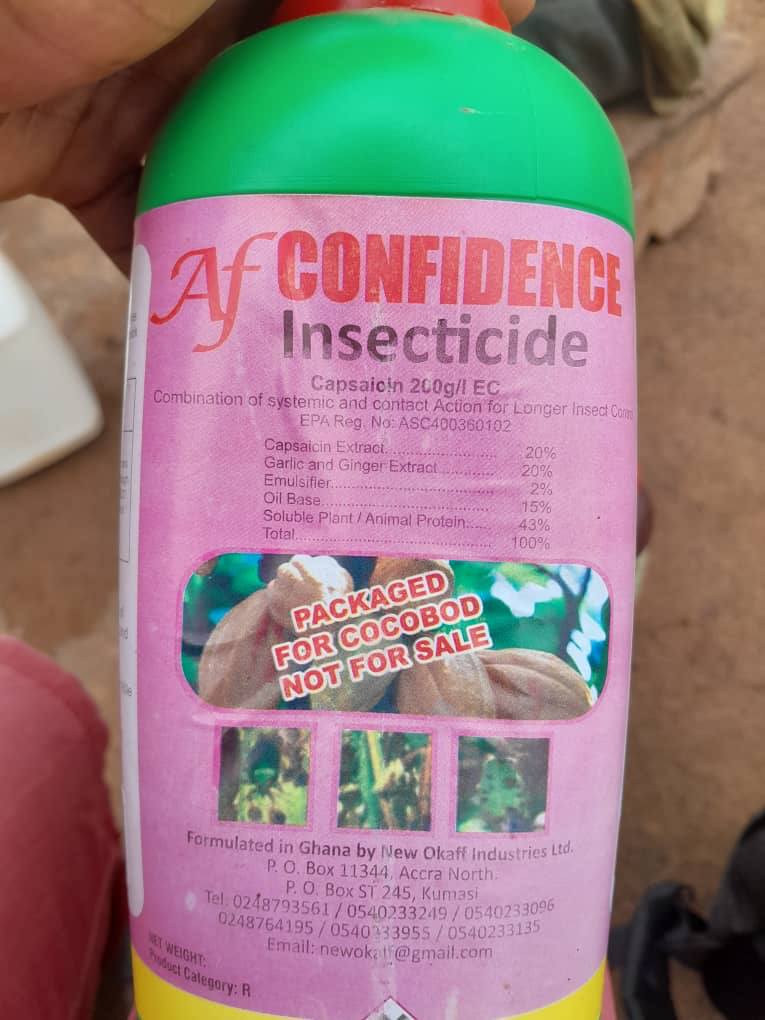
COCOBOD’s Response
Deputy Chief Executive of COCOBOD in charge of Agronomy and Quality Control, Dr. Francis Baah, said chemicals used by cocoa farmers are generally approved by the Cocoa Research Institute.
However, he admitted some farmers used unapproved products—particularly in border regions.
“There are inflows of cheap chemicals. Farmers buy them, and suppliers also imitate trusted brands,” he said. “The only solution is to raise public awareness on the dangers.”
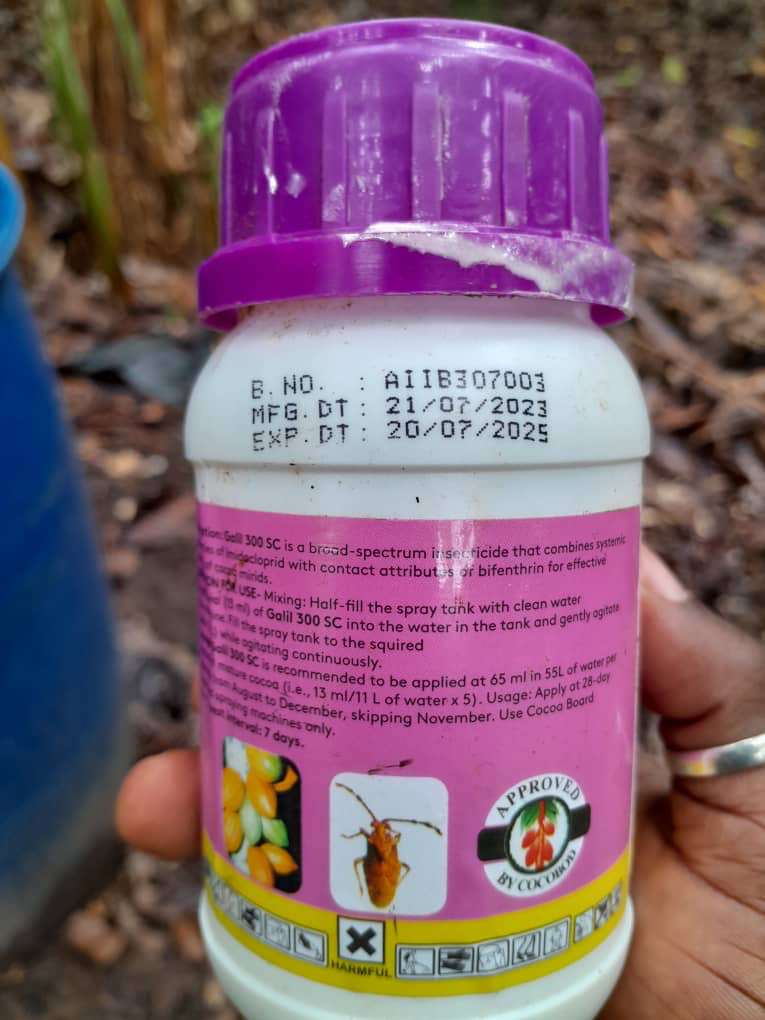
Corporate Responses
JOYNEWS reached out to major agrochemical companies operating in Ghana, including Bayer, BASF, Syngenta, Sasol, and Yara. Only Syngenta responded.
“Syngenta is proud to support Ghanaian cocoa farmers,” the company said in an emailed statement. “We work closely with COCOBOD, which exclusively buys our two registered cocoa products. Both are approved in Europe.”
The company said it complies with all national and international regulations and has trained over 10,000 Ghanaians in the safe use of its products in the past two years.
********
“The project received support from the Thomson Reuters Foundation through the Media Foundation for West Africa, as part of its global work aiming to strengthen free, fair and informed societies. Any financial assistance or support provided to the journalist has no editorial influence.
The content of this article belongs solely to the author and is not endorsed by or associated with the Thomson Reuters Foundation, Thomson Reuters, Reuters, nor any other affiliates”.
Source: Kwetey Nartey

